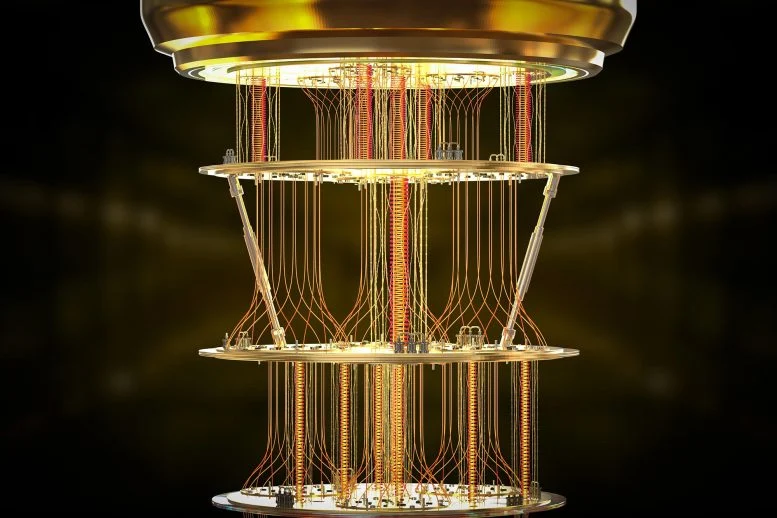
By Tohoku University March 29, 2025
Collected at: https://scitechdaily.com/quantum-computers-just-got-smart-enough-to-study-their-own-entanglement/
In a striking development, researchers have created a quantum algorithm that allows quantum computers to better understand and preserve the very phenomenon they rely on – quantum entanglement.
By introducing the variational entanglement witness (VEW), the team has boosted detection accuracy while also protecting this fragile connection between particles, moving us closer to a future of more powerful and reliable quantum technologies.
A Breakthrough in Entanglement Detection
Just as humans explore their own nature, quantum computers are now beginning to better understand the very principles they rely on.
Researchers from Tohoku University in Japan and St. Paul’s School in London have developed a new algorithm that enables quantum computers to analyze and preserve quantum entanglement – a core feature that underpins quantum computing. The work marks an important step forward in both our understanding of entanglement and the advancement of quantum technologies.
The findings were published in Physical Review Letters on March 4, 2025.

Quantum Entanglement: The Mysterious Link
Quantum entanglement, famously described by Einstein as “spooky action at a distance,” is a phenomenon where particles remain connected even when separated by vast distances. This strange and powerful effect is one of the key reasons quantum computers can outperform classical machines for certain tasks.
“Quantum computers are built upon entanglement and now they themselves can also be used to study and understand entanglement,” said Le Bin Ho, an assistant professor at the Frontier Research Institute for Interdisciplinary Sciences and Graduate School of Engineering at Tohoku University, and lead author of this study.
Introducing the Variational Entanglement Witness
The team introduced a method called variational entanglement witness (VEW), using a quantum algorithm that optimizes entanglement detection. Unlike traditional methods, which often fail to identify all entangled states, the VEW enhances detection accuracy while better differentiating between separable (not entangled) and entangled states.
Detecting entanglement, however, is only part of the challenge…
Detecting entanglement, however, is only part of the challenge. Though even a distance of light years between two entangled particles cannot truly set them apart, quantum entanglement is fragile in its own way.
“In many cases, traditional detection methods relying on local measurements can actually destroy quantum entanglement,” Le said.
To overcome this, the study proposes a nonlocal measurement framework, allowing researchers to assess entanglement properties without collapsing the quantum wave function.
Preserving Entanglement for Quantum Progress
“Our method provides a reliable way to detect and protect entanglement, which is essential for applications such as quantum computing, communication, and cryptography,” Le said. “While adaptive machine learning-based methods for entanglement detection are gaining popularity, this is the first quantum algorithm that both detects and preserves entanglement.”
The team plans to further refine the algorithm, aiming to improve the efficiency and precision of entanglement detection – key steps in advancing robust quantum technologies.
Reference: “Detecting and protecting entanglement through nonlocality, variational entanglement witness, and nonlocal measurements” by Haruki Matsunaga and Le Bin Ho, 4 March 2025, Physical Review Research.
DOI: 10.1103/PhysRevResearch.7.013239

Leave a Reply